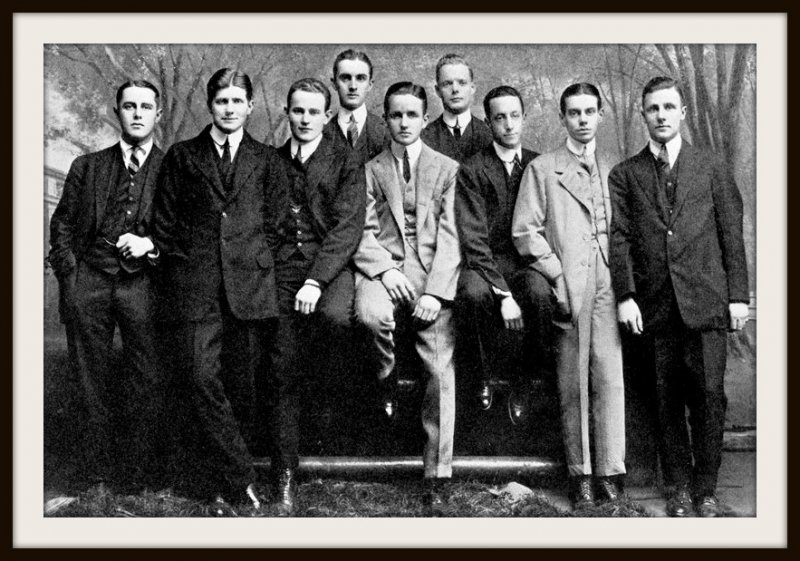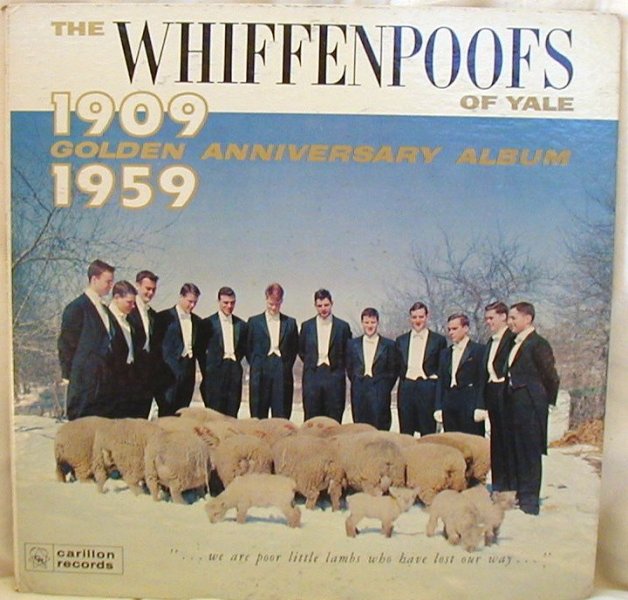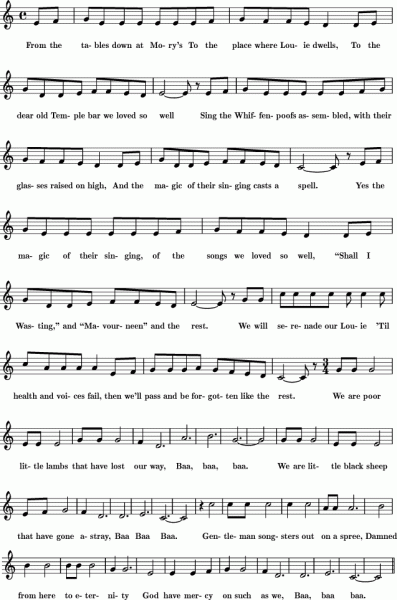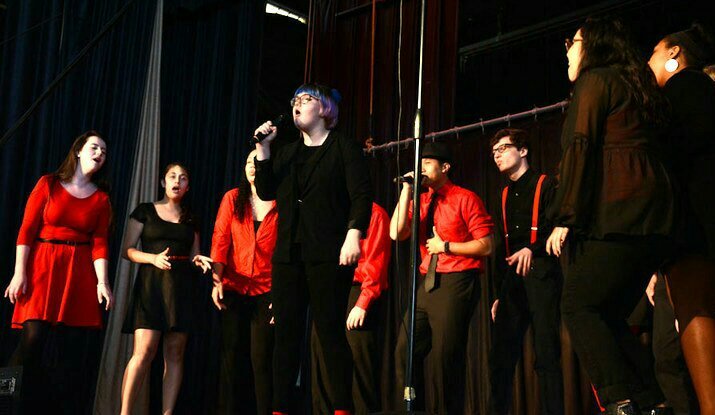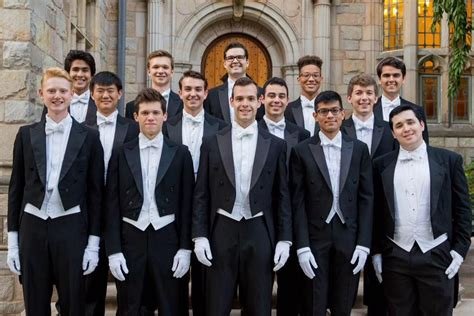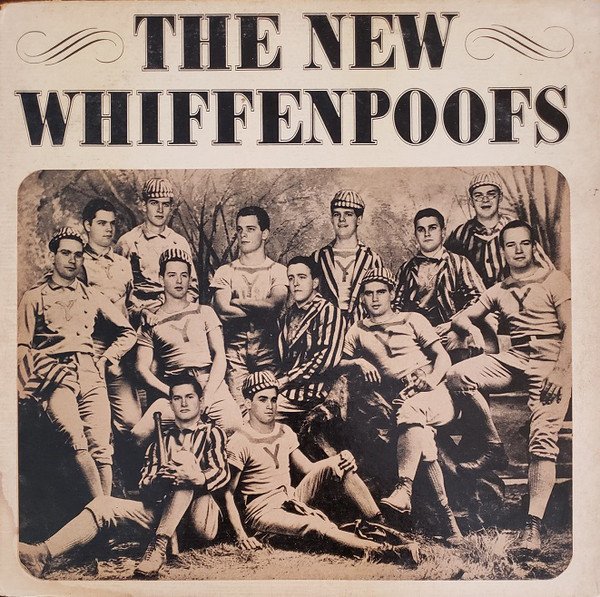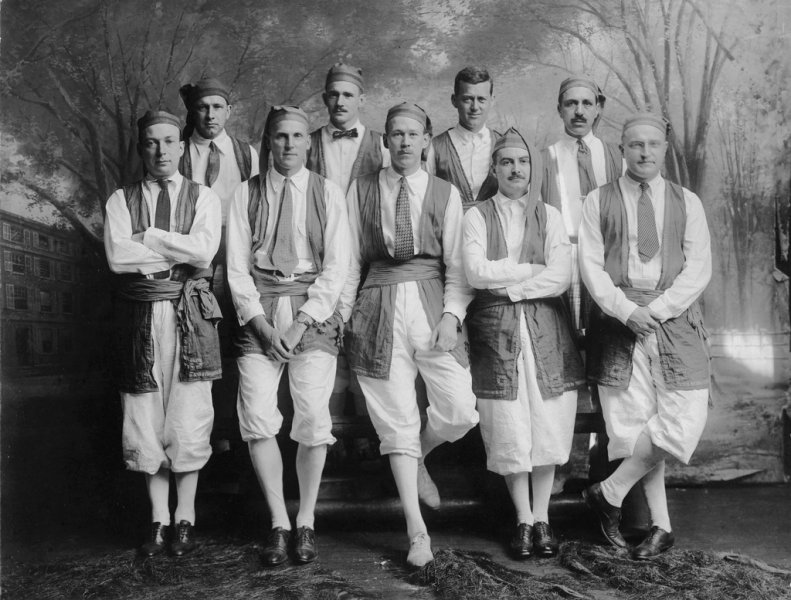The Whiffenpoofs

In 1907, five Yale students were performing weekly at Mory’s Temple Bar, a private club adjacent to the Yale campus. After appearing without a name for around two years, the group decided it was time for a name and one member suggested “The Whiffenpoofs,” which was a musical comedy playing on Broadway at the time. The group agreed that the lighthearted moniker fit the mood of their performances, deciding that the meaning itself was unimportant, and in 1909 The Whiffenpoofs were born.
The oldest continuously performing a capella group in the United States, the group is comprised of 14 Yale seniors, most of whom have experience singing in other on-campus singing groups. An intense competition during their junior year determines which hopefuls are selected for the coveted spots and the chosen 14 appeared all throughout the year; during the summer break, The Whiffenpoofs tour all over the world. Although Yale became co-ed in 1968, the leaders of the group were unwilling to admit women at the time, saying they feared losing their signature sound, but – after 50 years of debate and several failed attempts to change the all-male policy – they agreed to allow women starting in 2018.
COLE PORTER, “THE WHIFFENPOOF SONG”
Cole Porter, who graduated from Yale in 1913 and wrote some 300 songs while he was studying there, is the most famous group member and The Whiffenpoofs sing some of his tunes in every performance. Whether they realize it or not, most people have heard the group’s most famous number, “The Whiffenpoof Song,” which is an adaptation of Rudyard Kipling’s 1892 poem “Gentleman Rankers” and has been featured in many television shows and movies over the decades. In 1937, Vermont-born Rudy Vallée recorded the first cover version and in 1952 Bing Crosby sang it to Marilyn Monroe in the film Monkey Business. Traditionally, The Whiffenpoofs sing it as their closing song.
As of this writing, The Whiffenpoofs continue to perform every Friday without fail at Mory’s Temple Bar. Let’s hope their beatific harmonies will be heard for at least 100 more years.
(by Carol Starkey)

